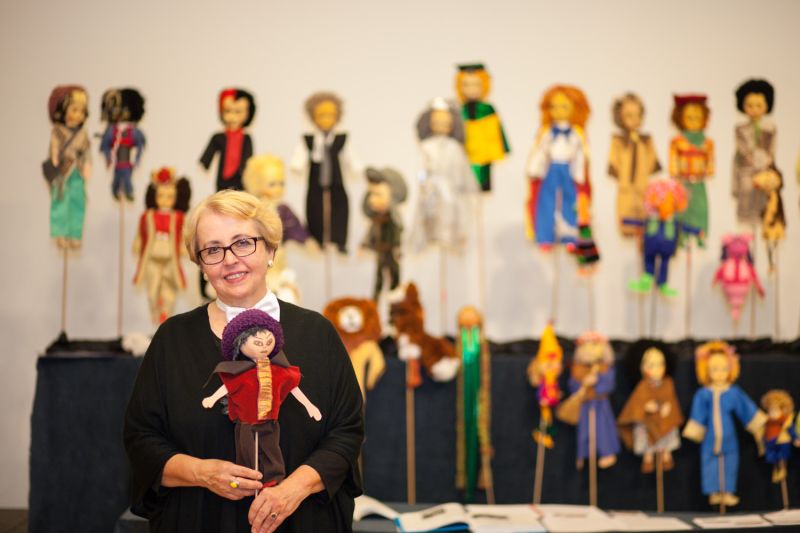Maria Końska-Chmielecki. Puppets, passion and Polish traditions
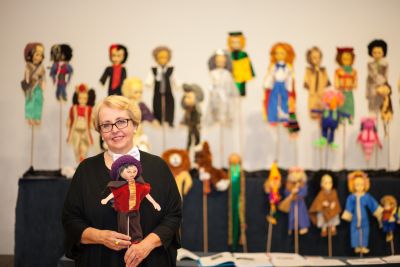
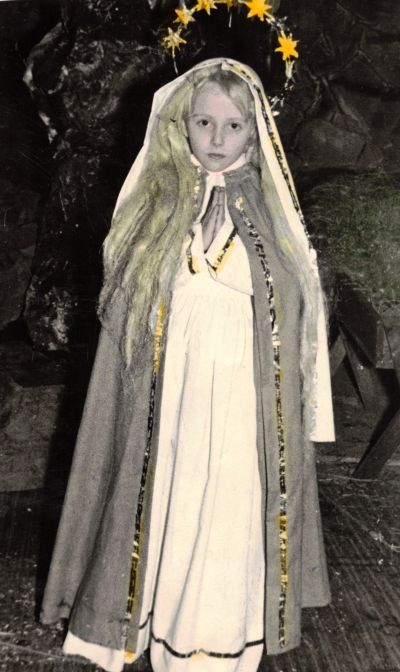
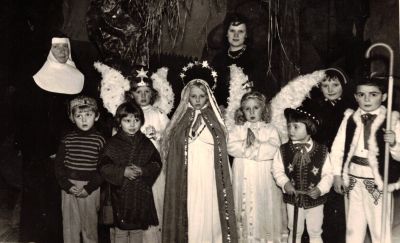
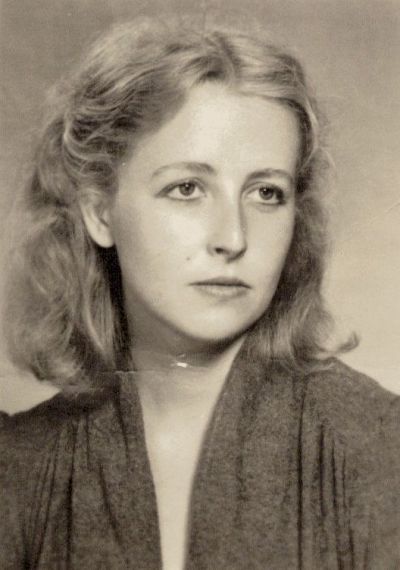
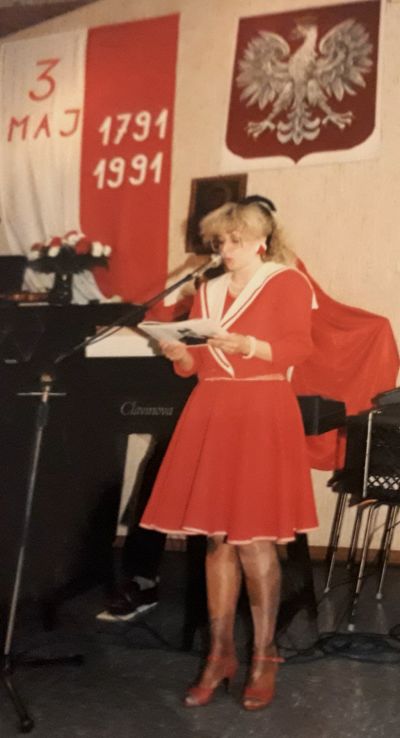
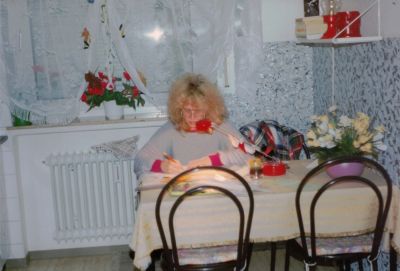
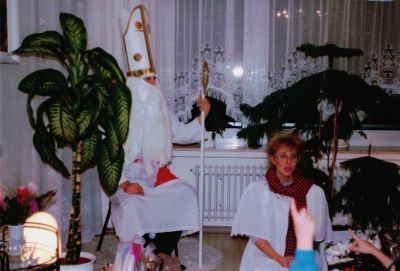
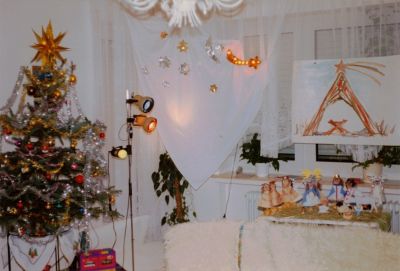
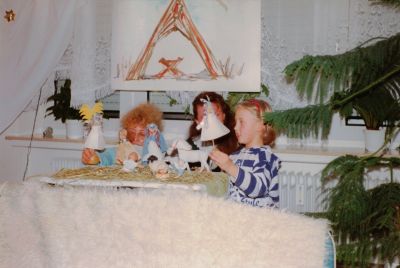
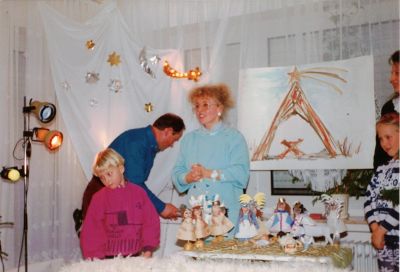
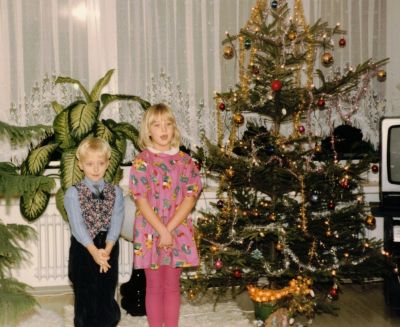
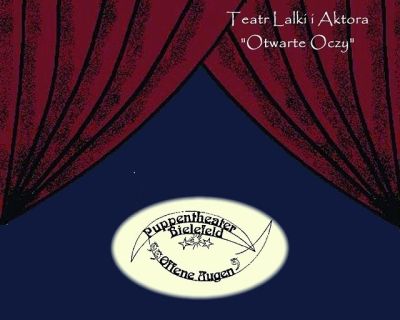
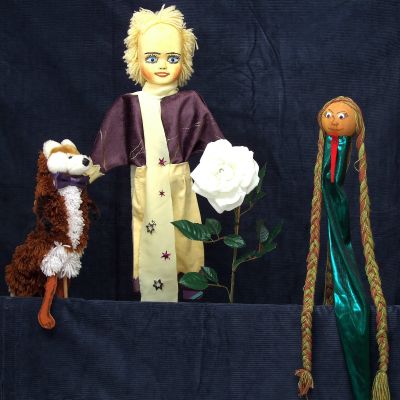
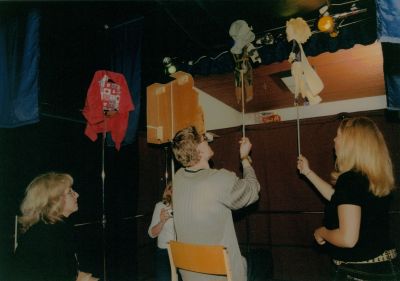
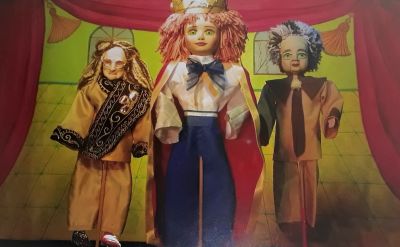
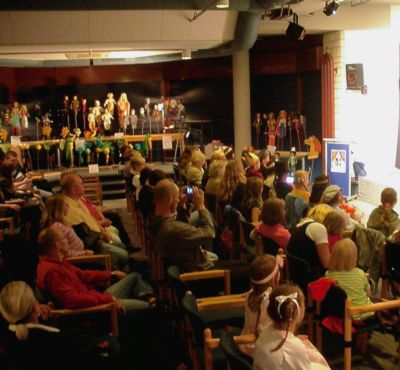
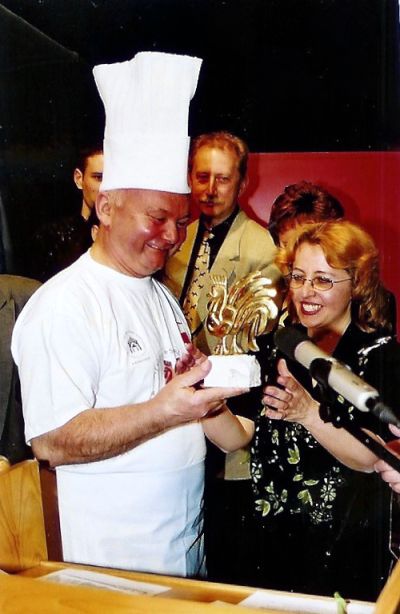
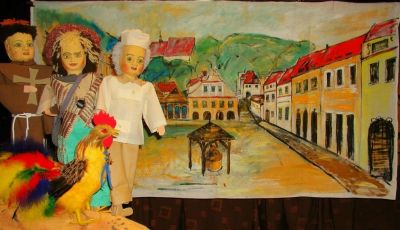
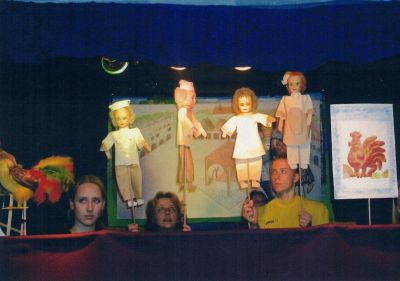
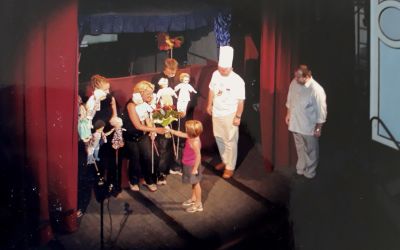
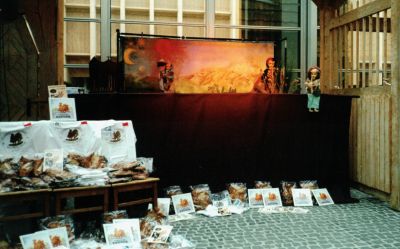
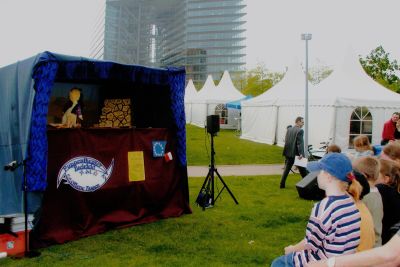
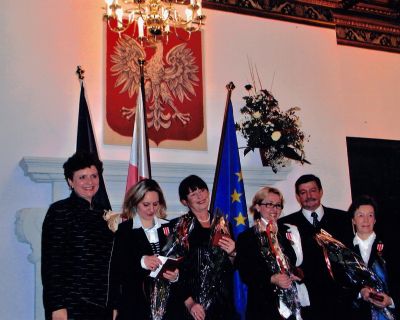
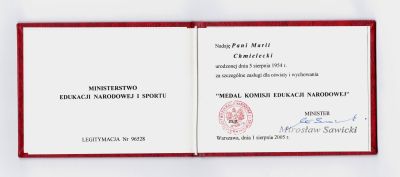
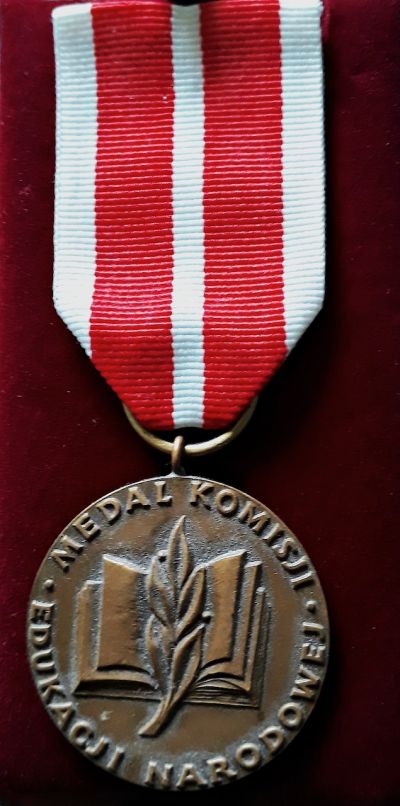
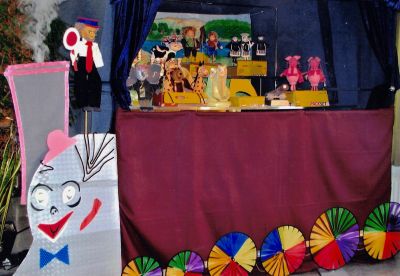
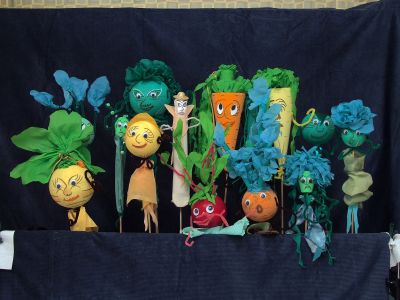
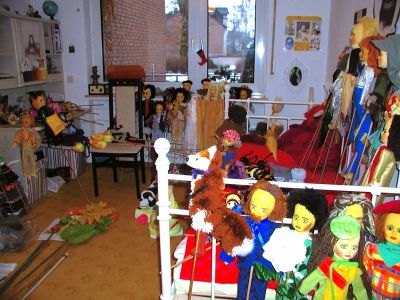
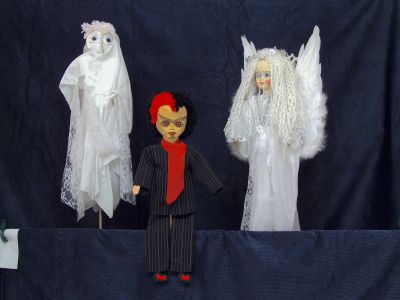
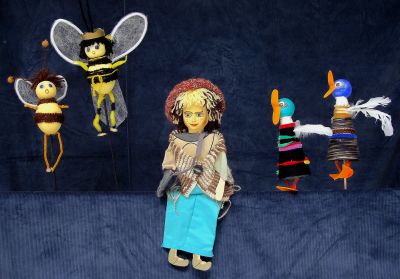
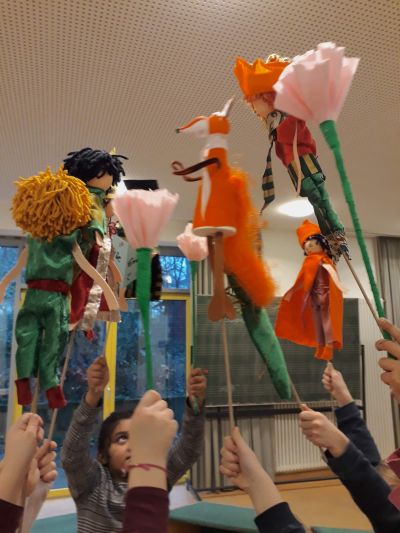
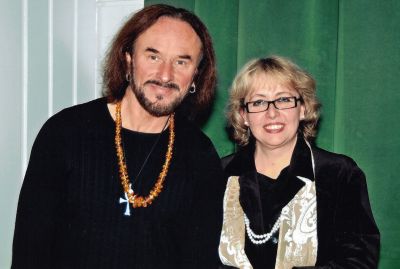
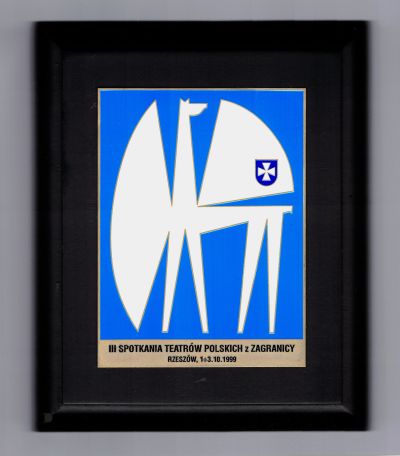
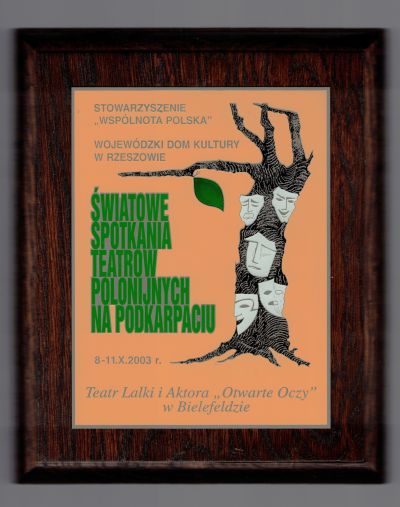
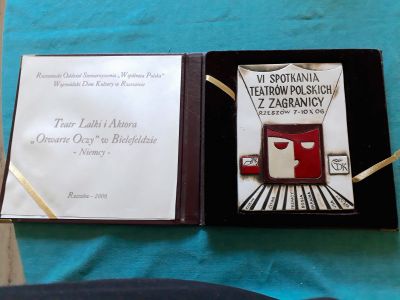
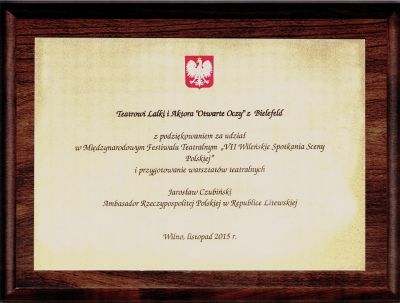
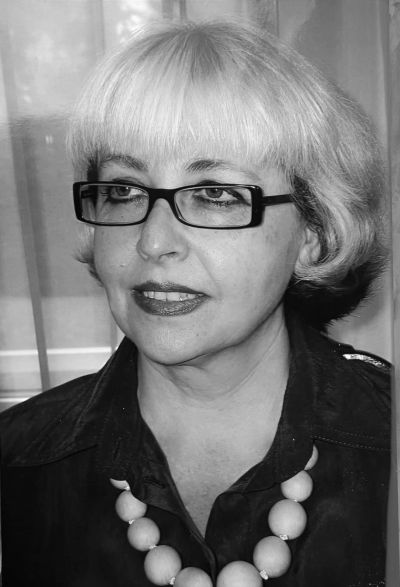
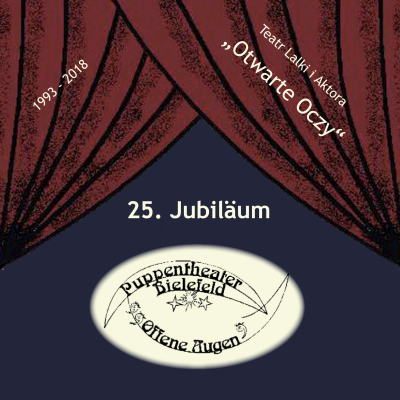

Sweet legends.
The origins of “Baker Sarzyński and his Cockerel”
In 2000, a unique creative joint project was born when our mother was asked by one of the most famous bakers in Poland to create a play based on the legend of his home town, Kazimierz Dolny. The result was “Bäcker Sarzyński und sein Hahn” (Baker Sarzyński and his Cockerel), which was written and directed by Maria Końska-Chmielecki.
The story takes us to the picturesque town of Kazimierz Dolny on the Vistula river, not far from the city of Lublin in eastern Poland. There is a legend here concerning a black cockerel, which used to be the symbol of the town. One day, however, the black cockerel tragically fell victim to the crafty devil. According to the legend, the brave citizens of Kazimierz Dolny then drove the devil away. To make sure that such dark events would never occur again, they adorned the next cockerel with coloured feathers. The impressive, colourfully decorated cockerel so inspired the inhabitants of the town that they decided to create a replica of it in sweet pastry. A competition was set up between the bakers to find out who could create the most attractive replica of the colourful cockerel. The winner was Cezary Sarzyński with his beautiful sweet pastry bird.
Anyone who has ever been to Kazimierz Dolny knows that no visit is complete without trying the famous cockerels made of sweet yeast dough at the Sarzyński bakery. With this play, we and Baker Sarzyński travelled far and wide, with performances in places such as Barbizon and Paris in France, in numerous Polish towns and cities, and in Germany at the Expo 2000 in Hanover. In the Polish pavilion, cockerels made of bread dough were distributed among the audience after performances of “Baker Sarzyński and his Cockerel”. The “Offene Augen” puppet theatre had already long ago made a name for itself beyond Bielefeld, and with this play, it won over the hearts of audiences in other countries, too.
Cultural integration through creative ideas.
The legacy of the puppet theatre
The “Offene Augen” puppet theatre was a travelling stage. Over the years, the theatre had participated in numerous events and festivals in Europe, including in Vilnius (Lithuania) and in Bielefeld’s partner city of Rzeszów (Poland), as well as in Mainz at the festivities to celebrate the constitution of the federal state parliament in Rhineland Palatinate. Our mother showed the same degree of enthusiasm and commitment when it came to organising regular events in Bielefeld, inviting people to come and attend them. As the years went by, the puppet theatre built up an impressive list of collaborations in Bielefeld, including with schools in the city, local communities, clubs and associations, the cultural administration office, and the adult education centre. The theatre offered regular theatre workshops for adults and children and worked with various different cultural institutions, including the Theaterlabor and the Mobiles Theater in Bielefeld. Rehearsals often took place in the Haus der offenen Tür (HOT) in Bielefeld-Schildesche. There were also collaborative projects with the culture office for North Rhine-Westphalia in Wuppertal and the central library in Bielefeld. The theatre received financial support from various sponsors, including the Consulate General of the Republic of Poland in Cologne, the Polish community (Wspólnota Polska) in Warsaw and the cultural administration office in Bielefeld. Thanks to the high level of commitment on both sides, the collaboration between the puppet theatre and the Arbeiterwohlfahrt in Bielefeld that generated inspiring and long-lasting cultural ideas succeeded in continuing for over 13 years.
In 2022, the curtain fell on “Offene Augen” for the final time. Our dear mother, Maria Końska-Chmielecki, the theatre’s founder and director, died after a long illness. She left a legacy of nearly 30 years of dedicated work in the arts, creative projects and international collaborations. This article was written by her two children in memory of this very special woman.
Joanna M. Chmielecki and Dominik Chmielecki, August 2024





















































































